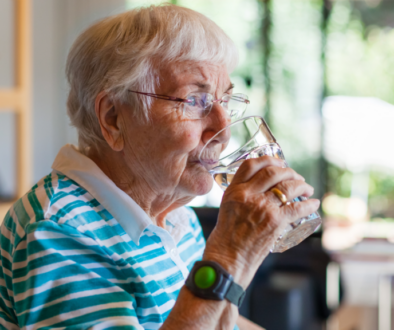September 2023
Hello Memory Partners!
We hope you’re having a great summer and have found some relief from this heat we’ve experienced lately here in the Cape Fear region! The Memory Partners team at Lower Cape Fear LifeCare is dreaming of cooler temperatures as fall approaches. Speaking of fall, we are also gearing up for the annual Walk to End Alzheimer’s, hosted by the Alzheimer’s Association, on Nov. 4, 2023. If you’re interested in participating, you can do so by joining our team to show support, making a donation, or by coming out and walking with us! For more information or to register, click this link.
Smells Like Cognition?
Scientists recently published an article demonstrating the effects of olfactory (a big word for smell) stimulation on cognition – and the results were impressive. This study looked at what happens when people are exposed to scents via essential oils while they sleep – and found a significant improvement in some areas of cognition. While it’s difficult to draw strong conclusions from a single study, the findings here are worth considering and pursuing in further research.
The study participants consisted of 43 adults between the ages of 60 to 85 years. Half of them were exposed to an essential oil through a diffuser for two hours while they slept, and the other half were not. They also participated in several cognitive assessments before and after the study. The group exposed to essential oils showed significant improvement in cognition when they were re-tested after a period of six months.
It’s important to note that this study is relatively small, so broad conclusions cannot be made. Another important thing to keep in mind is that this study does not specify that any of the participants had a dementia-related illness, so it cannot be inferred that this will work for someone who does.
To read more, click here.
The Miracle of Music
Music may be an under-used tool for people caring for someone with a dementia-related illness. Easily accessible and a low-cost intervention, music has the potential to improve daily life for both caregivers and the people receiving care. Research has shown that music can improve verbal skills, coordination and mood in people who are challenged by changing brains.
Alzheimer’s Foundation of America recently talked with Dr. Concetta Tomaino, DA, LCAT, MT-BC, who has done research with fellow scientist Dr. Oliver Sachs about how music affects people who are experiencing brain changes. In the article, he details how music interventions can help in multiple ways. For example, connecting to the rhythm of a song may help someone connect to movement centers in the brain, improving a person’s ability to walk. Another example he gives is of a caregiver whose wife was resistant to bathing. He was able to turn on some of her favorite music and dance their way into the bathroom, alleviating her anxiety and making the experience less stressful for both.
It’s important to look for music that is personally important to the person that will make an emotional connection, so that it excites areas of the brain like the hippocampus and amygdala, which in turn will stimulate other areas of the brain. To read the full article and learn more about how incorporating music into your caregiving toolkit may be helpful, click here. In the meantime, don’t forget that turning on the right music will not just help the person who has dementia, but will also help lift your own spirits and support a positive outlook. It’s a free, easy, win-win situation!





